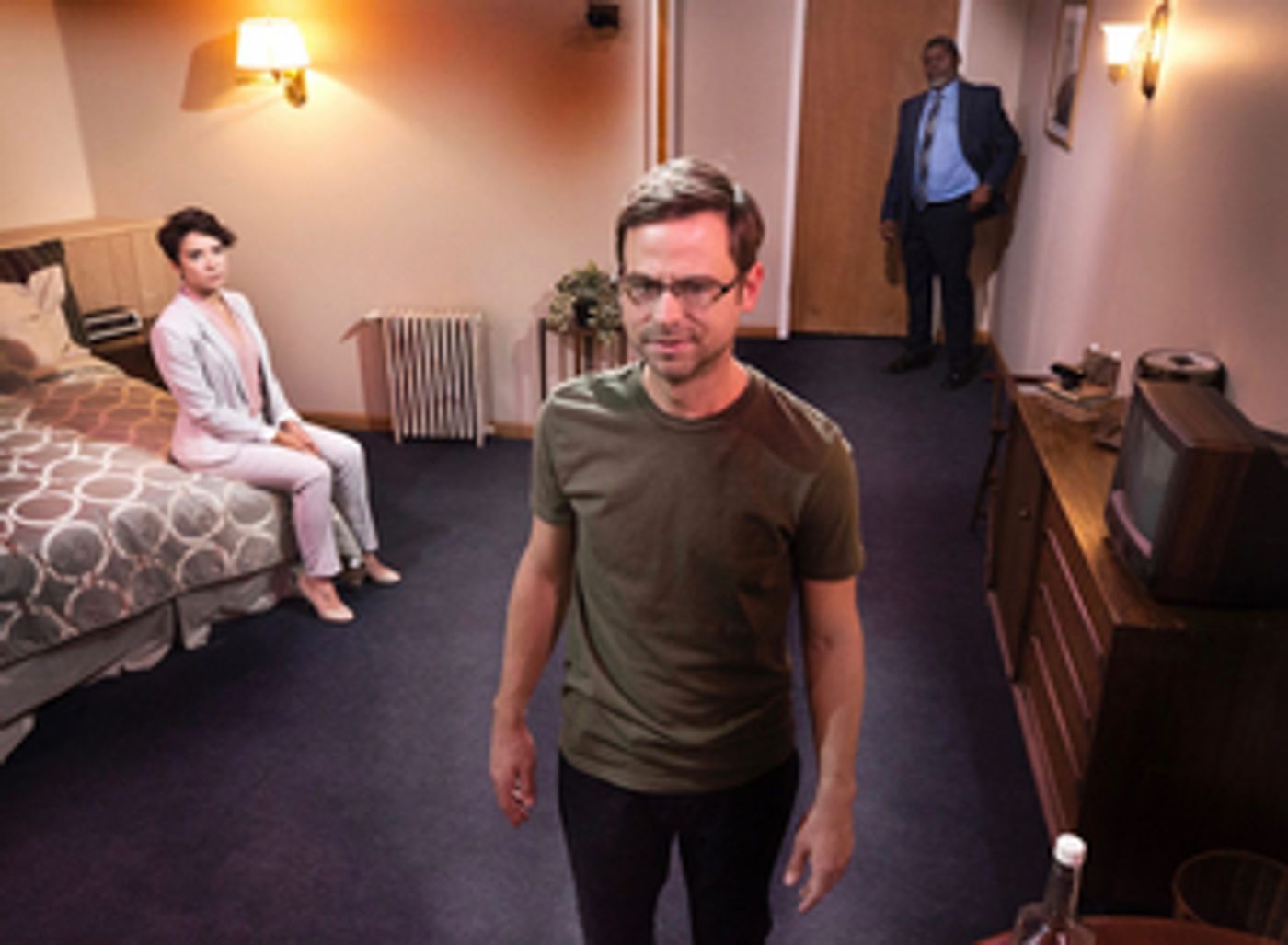Review: WILD at Quantum Theatre May Be Dated, But It's Not Outdated
BWW review: WILD at Quantum Theatre
 Let's get one thing out of the way; this is a play about Edward Snowden. The main character is referred to by the name Andrew, but it's either a "no celebrities were harmed in this fictionalized story" situation, or "Andrew" is a pseudonym. This is a play about the civil servant who stole classified information and fled the country, as part of a controversial but eye-opening attempt to whistle-blow on the government for mass surveillance. (Remember The Dark Knight? Remember how topical and prescient and edgy it seemed for suggesting that someday the government MIGHT run mass surveillance programs or could use your cell phones to monitor you? I watched that movie again last month and it seemed... almost quaint.)
Let's get one thing out of the way; this is a play about Edward Snowden. The main character is referred to by the name Andrew, but it's either a "no celebrities were harmed in this fictionalized story" situation, or "Andrew" is a pseudonym. This is a play about the civil servant who stole classified information and fled the country, as part of a controversial but eye-opening attempt to whistle-blow on the government for mass surveillance. (Remember The Dark Knight? Remember how topical and prescient and edgy it seemed for suggesting that someday the government MIGHT run mass surveillance programs or could use your cell phones to monitor you? I watched that movie again last month and it seemed... almost quaint.)
Quantum Theatre continues its mission to produce site-specific theatre with a show whose site is... the internet? That's right, it's pandemic special time, with their encore presentation of Mike Bartlett's Wild. Though originally written to be played in two acts in front of a live audience as conventional theatre, the piece arguably works better as a filmed piece, for reasons I'll get into later. Director Sam Turich has fused live theatre, film and web streaming into a single entity by staging the play essentially live and in real time, filmed from multiple angles as observed from hidden security cameras.
The time? Earlier in the twenty-first century. The place? A hotel room. Edward Sno- I'm sorry, "Andrew" (Chris Cattell) has fled the United States and holed up in attempted anonymity after blowing the whistle on government surveillance. In his seclusion, he is visited by two alternating presences, both of whom claim to be roughly the same person and working for the same organization. One (Lydia Gibson) is young, chatty, flirtatious and oddly vulnerable beneath her secret-agent pose. The other (Wali Jamal) is middle-aged, brusque, authoritative and threatening. Both of them claim to be "George," who works for the mysterious and all-powerful "Him" that Andrew fears. Which one is telling the truth? Which one can Andrew trust in his precarious position?
I've seen Bartlett's play compared to Kafka, and that's not entirely unfounded. The strange layers of ambiguity about where Andrew is, who his actual handler is and who or what the mysterious "Him" even represents definitely add to the bureaucratic nightmare state so commonly associated with the work of Franz Kafka. To me, though, the play seems more indebted to a modern paranoid fantasist, Christopher Nolan. Whether in superhero stories like The Dark Knight, science-fiction journeys like Inception, or simply noir revivals like Memento, Nolan and his cadre of associated artists established the "gritty" aesthetic and sensibility that defined the twenty-first century's dark, cynical and philosophically informed outlook. Kelsey Garrett's scenic design isn't as grungy or as opulent as Nolan's typical visual sensibility, but the use of odd angles and unpredictable spaces for camera placement is very Nolanesque, as is Bartlett's rapid-fire, nihilistic dialogue.
Chris Cattell's low-key performance perfectly fits Andrew's place as a conscientious Everyman in over his head in a world where right and wrong may not even exist. He plays well opposite both agents, allowing Wali Jamal's dominant personality to overpower him and back him into a corner again and again, while playing cat and mouse with Lydia Gibson's agent. As far as I'm concerned, Gibson stole the whole show. Her charmingly untrustworthy character reminds me of half James Bond, half Sally Bowles, with the same mix of bravado, hidden doubt, and absolutely no filter.
And now, a word about the ending. WARNING- SPOILERS AHEAD. When staged in a conventional theatre, the play's ending is a little predictable; both secret agents aren't rivals, but partners, testing Andrew to see if he'll crack or if he's worthwhile to "Him" after all. The set comes apart, revealing he was never in a hotel at all, but a secret holding facility where he has been monitored. It's a twist you've seen in movies and television shows again and again... but this one is different. In a genuinely unsettling moment, the agents disrupt reality as we know it, reducing Andrew to his metadata and dropping him into the internet, where he is digitally manipulated and reproduced over and over again until he agrees to cooperate, and he is returned to the seemingly "real" world again. But how real is it, after what we've just seen? Turich's demolition of the fourth wall and reality-bending aesthetic here seems indebted to the infamous ending of Neon Genesis Evangelion, creating an uncanny valley effect I've never seen in live-ish theatre before.
Granted, there's not a lot said in Bartlett's script that hasn't been said before. We're twenty years into the century of surveillance and social media has become not a luxury, but an omnipresent branch of modern communication. You can't really opt out of it anymore. As such, there are moments in this show that seem almost quaint. We aren't shocked by surveillance anymore- we accepted it. By complacency, we opted in. Still, this show is about the journey more than the destination- until those last five minutes where we reach a truly unsettling, unexpected destination after all.
Reader Reviews
Videos

